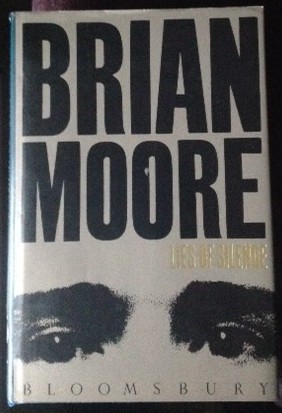Inspiring Older Readers
 posted on 13 Jul 2017
posted on 13 Jul 2017
Lies of Silence by Brian Moore
The fragility of the Good Friday power-sharing agreement that brought an end to the Troubles that so scarred Northern Ireland’s communities for three decades should be a matter of concern to all of us. The breakdown of trust between Sinn Fein and the Democratic Unionists that threatens a return to direct rule by the British Parliament revives terrible memories of the violence and civil strife that tore communities apart and resulted in deadly violence.
So it felt like an entirely appropriate time to revisit some of the work of one of Northern Ireland’s premier writers, Brian Moore. Moore was born in Belfast in 1928 but emigrated to Canada in 1948 and then to the USA where he stayed until his death in 1999. He was cited by Graham Greene as one of his favourite authors and was described in an obituary by John Bemrose as "one of the few genuine masters of the contemporary novel". His range of subject matter was broad – from thrillers to introspective narratives to the anti-clerical and anti-authoritarian– but his sense of being an Irish writer was always strong.
Lies of Silence deals directly with the Troubles and examines the impact of the unwitting involvement of ordinary people in violent sectarianism. The power of the novel lies in the unravelling of a story that twists and turns – with every twist raising the tension a little bit higher. He’s a writer capable of dropping the unexpected in your lap and somehow making you feel that you knew what was going to happen all along.
This is a hard book to summarise in plot terms without giving away crucial elements of the story that you’ll want to follow for yourself. Suffice it to say that when the book opens Michael Dillon, the erstwhile manager of a grand Belfast hotel, has his own domestic dilemmas at the top of his ‘to do’ list. His marriage is a mess and he’s already involved with another woman; he’s decided he needs a new start and he’s just got to find a way of telling his beautiful but fractious and highly-strung wife he’s leaving her. That seems like a big enough moral dilemma for him but it turns out to be nothing compared with what awaits him that evening. His house is invaded by nervous, over-excitable IRA volunteers in balaclavas who are going to force him to park his car, filled with explosives, at the hotel in the hope of assassinating a rabble-rousing, high profile member of the Orange Order.
As the story plays itself out, Michael finds himself in a whole series of personal and moral dilemmas and how he resolves these has the potential to determine not just his future, not just his long term relationships but may ultimately be an issue of life or death.
Along the way we get superbly and deftly drawn character portraits – Michael’s wife, the frightened and frightening teenage IRA volunteers, the Catholic priest who tries to influence Michael’s actions and, of course, the ordinary and conflicted Michael himself.
Reviewing the book in The New York Times in 1990 when it was released in the States, Francine Prose made this perceptive assessment:
''Lies of Silence'' has immense tensile strength. One is struck by how austere its sentences are - and yet by how much the novel embraces, how much disturbance it generates without ever stooping to theatrics, how daringly it approaches and eludes the clutches of melodrama. It is possible to read this book purely for the pleasantly unsettling angst its dramatic plot induces. But it is more rewarding to pause and admire its flashes of depth and the nervy way in which Mr. Moore takes textbook-case ethical quandaries (the good of one versus the good of many, the right to a private life versus social responsibility) and uses the techniques of fiction to give them an agonizing, provocative spin. Certain scenes - Dillon's wife's conversation with a jumpy, teen-age I.R.A. volunteer and, later, his own confrontation with a manipulative Catholic priest - can be read as paradigms of how to create tension and surprise while remaining convincing and without contrivance.
I think Prose puts her finger on something important here – the extraordinary skill of the writing. He has the ability to make a complex plot seem easy to do, to build tension without seeming to set out to do so and, perhaps most of all, unsettle the reader with cunning and crafty moral dilemmas. You’ll finish the book surprised and conflicted – but I guess that’s the job of fiction and Brian Moore understood that.
Terry Potter
July 2017